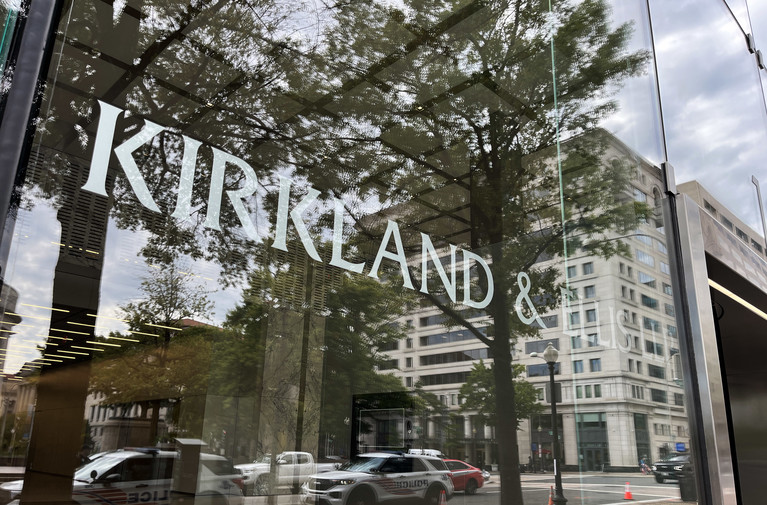Kirkland & Ellis Ditches Public Partner Announcements in 2025: Big Law Strategy Shift Sparks Buzz on Law Firm Partnerships, Talent Retention
In the high-stakes arena of Big Law, where prestige often demands a spotlight, Kirkland & Ellis is pulling back the curtain on its annual ritual. The Chicago-based powerhouse, long known for flaunting massive partner promotions, has opted for silence this year—marking a bold strategy shift in law firm partnerships and talent retention amid rising scrutiny over associate churn.
This unexpected pivot comes as the legal industry grapples with evolving dynamics in 2025. Kirkland & Ellis, the world’s top-grossing law firm with $8.8 billion in revenue last year, traditionally trumpeted its partnership classes like victory laps. Just last October, it celebrated elevating 200 attorneys to partner roles, a number that underscored its aggressive growth in mergers and acquisitions (M&A) and private equity deals. Those announcements weren’t just press releases; they were magnets for top talent, signaling stability and success to ambitious associates nationwide.
But this fall, as October ticked by without the usual fanfare, whispers turned to headlines. Industry watchers point to a calculated move: avoiding the embarrassment of quick exits by newly minted nonequity partners. Reports indicate that some recent promotees have jumped ship within one to two years, a trend that’s stung Kirkland’s reputation for retention. “It’s unusual indeed,” says Jeffrey Lowe, a partner at recruiting firm CenterPeak Partners. “Firms like Kirkland thrive on showmanship to lure laterals and clients—going quiet feels like hiding from the mirror.”
The backstory adds layers to this decision. Kirkland’s two-tier partnership model—salaried nonequity partners who bill big but don’t share profits—has fueled its dominance. It allows faster promotions than peers, turning associates into “partners” after about eight years post-law school. Yet, with only a fraction advancing to equity status (where profits per partner hit $9.25 million in 2024), frustration brews. Recent internal tweaks, like shortening the equity track from four to three years as a salaried partner, aimed to stem departures. Still, attrition rates hover high, especially in cutthroat markets like New York and California, where 44 and 38 of last year’s promotees hailed from.
Public reactions have been swift and sharp. On legal forums and LinkedIn, associates vent frustration over the “fast-track to nowhere” perception. One anonymous Big Law insider posted, “Congrats on partner? More like congrats on the title bump before the burnout.” Recruiters like Lowe see it as a symptom of broader Big Law woes: burnout from 2,600-hour billables, work-life imbalance, and a post-pandemic talent war. Even clients murmur—why bet on a firm where key players vanish so fast?
Kent Zimmermann, a principal at consultancy Zeughauser Group, frames it strategically. “Most firms feel pressure to grow headcount and profits in 2025, but Kirkland’s silence screams caution,” he notes. “It’s a hedge against volatility in M&A cycles and economic headwinds.” Indeed, with global dealmaking rebounding but U.S. regulatory scrutiny intensifying under the current administration, firms are prioritizing depth over dazzle.
For U.S. readers, this ripples beyond boardrooms into everyday economic life. Kirkland & Ellis isn’t just a firm; it’s a deal engine powering corporate America. Its work on blockbuster M&A—like advising Vista Equity Partners on recent investments—fuels job creation, tech innovations, and market stability. A wobbly talent pipeline here could slow those engines, hiking legal fees for businesses and, ultimately, costs passed to consumers. Aspiring lawyers eyeing Big Law careers might rethink the grind, exacerbating a talent shortage that hits everything from startup funding in Silicon Valley to antitrust battles in Washington, D.C. Politically, it underscores tensions: Kirkland’s recent pro bono pivot to dodge Justice Department probes under President Trump highlights how elite firms navigate power corridors, influencing policy that shapes American commerce.
User intent drives this story’s pull—job seekers searching “law firm partnerships 2025” want real talk on career ladders, while execs probing “talent retention strategies” seek blueprints for their teams. Kirkland’s move caters to that, modeling discretion over bravado in an era where quiet competence trumps loud metrics.
This shift signals a maturing Big Law landscape, where unchecked expansion yields to sustainable growth. Looking ahead, expect Kirkland to double down on retention perks—perhaps more equity paths or wellness initiatives—to rebuild trust. As competitors like Cravath and Paul Weiss refine their own two-tier models, the industry may follow suit, fostering a more resilient ecosystem for lawyers and clients alike. For now, the silence from Kirkland echoes louder than any announcement could.
By Sam Michael
Follow and subscribe to us for the latest updates—turn on push notifications to never miss a beat on Big Law breakthroughs!
